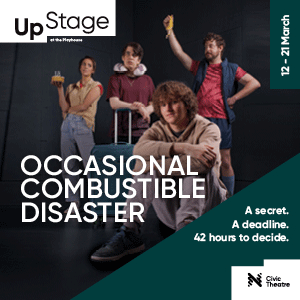HEALTHY AND UNHEALTHY Connections
- Mar 7, 2017
- 3 min read

In my last article (Dec/Jan issue) I wrote about the importance of finding connection and how being connected is one of our most basic human needs. Without connection, we are destined to feel isolated, and our personal growth can stall, similar to a plant being starved of sun or water. Healthy connections are to be found in relationships. However being able to sustain healthy relationships requires skills in understanding ourselves and how we relate to others.
For example, if we are not comfortable in ourselves, we are likely to either avoid relationships or try to control them. The use of control to maintain one’s position in a relationship can result in disrespect and even abuse (physical, verbal, emotional). This occurs in families, workplaces and social settings.
However, the result is often further disconnection and isolation.
An interesting aspect of connection is that it activates the motivation/reward systems in our brain via the release of a chemical called dopamine. Dopamine creates a feeling of satisfaction and sometimes euphoria. This feeling can be so pleasant that it leaves us wanting more.
Dopamine is released regardless of whether the connection is a healthy or unhealthy one. Once dopamine is released, it reinforces the habit regardless of whether it is healthy or unhealthy. An unhealthy connection is whatever means we habitually use to reduce anxiety, without actually addressing the source of the anxiety. It’s like taking a painkiller to numb painful sensations, but not taking steps to understand the cause of the pain.
When the connection is unhealthy, it can become an addiction. This is the basis of substance addictions – alcohol, drugs, and other forms of addiction called process addictions – gambling, sex, pornography, workaholism, eating, excessive exercise, shopping and yes – dependency on mobile phones and social media. People can also become addicted to love and anger, as a result of the false sense of euphoria or control/safety that is created.
However, all addictions inevitably undermine true connection, because they isolate us within ourselves and we lose our perspective on what is actually happening. All addictions have consequences for our health and wellbeing.
A sign of an addiction is the sense of being compelled to follow it, being driven, or not able to be without it. By examining our habits and asking ourselves whether the connection is healthy or unhealthy, we can begin to get a better gauge of whether our “passion” for someone or something, is balanced.
Denial is a very strong part of addiction, and this is where feedback from others can be very helpful in raising our awareness around our patterns of behaviour – helping us to uncover blind spots. Being able to accept and act on feedback is, therefore, a crucial part of the type of personal growth that enables us to form and maintain healthy connections.
If you think that you may have an addiction, there are various avenues to seek help. Why not talk to someone who you can share your concerns with, as a first step. For problems with alcohol, drugs and gambling your family GP is a great place to start.

Anne Ward is principal psychologist of Mindinsight, providing evidence-based psychology services to adults, children and adolescents. Mindinsight is located in the T&G Building at 45 Hunter Street Newcastle. Visit www.mindinsight.com.au for more information or email info@mindinsight.com.au












































